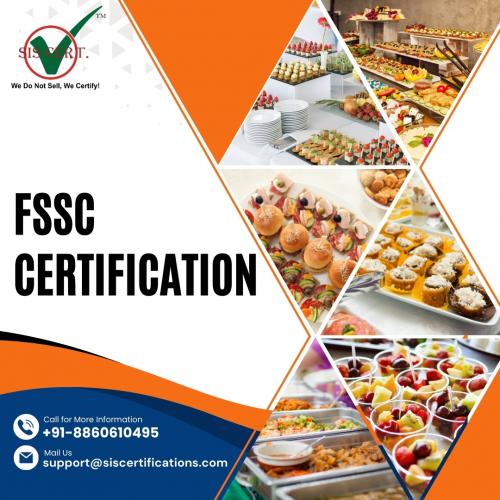Ensuring Food Safety with FSSC Certification: What You Need to Know

FSSC (Food Safety System Certification) is a robust and globally recognized food safety certification scheme.
Here's what you need to know to ensure food safety with FSSC certification:
1. Understanding FSSC Certification:
FSSC 22000: This is a Food Safety Management System (FSMS) certification scheme recognized by the Global Food Safety Initiative (GFSI).
Scope: FSSC 22000 Certification covers the entire food supply chain, from primary production to distribution.
Requirements: It integrates ISO 22000:2018 (Food Safety Management Systems requirements) with additional FSSC requirements.
2. Key Components of FSSC Certification:
Management Commitment: Top management must be committed to ensuring food safety and providing necessary resources.
Food Safety Policy: An effective food safety policy should be established and communicated across the organization.
Hazard Analysis and Critical Control Points (HACCP): Identify, evaluate, and control food safety hazards.
Prerequisite Programs (PRPs): Implement Good Manufacturing Practices (GMPs), Good Hygiene Practices (GHPs), and other essential programs.
Document Control: Maintain proper documentation of procedures, policies, and records.
Internal Audits: Conduct regular internal audits to ensure compliance and identify areas for improvement.
Management Review: Periodic review of the FSMS by top management to ensure its effectiveness.
3. Implementing FSSC Certification:
Gap Analysis: Identify gaps between current practices and FSSC requirements.
Training and Awareness: Ensure all employees are trained and aware of food safety practices.
Documentation: Develop and maintain the required documentation according to FSSC standards.
Implementation Plan: Create a clear plan for implementing FSSC requirements across the organization.
Monitoring and Measurement: Establish procedures for monitoring and measuring the effectiveness of the FSMS.
4. Benefits of FSSC Certification:
Global Recognition: FSSC certification is globally recognized and accepted by food industry stakeholders.
Enhanced Food Safety: Implementation of FSSC leads to improved food safety practices, reducing the risk of foodborne illnesses.
Market Access: Certification opens doors to new markets and enhances your company’s reputation.
Customer Confidence: Consumers trust products with FSSC certification, leading to increased customer satisfaction.
5. Maintaining FSSC Certification:
Continuous Improvement: Regularly review and improve the FSMS to ensure ongoing compliance and effectiveness.
External Audits: Prepare for and undergo external audits by accredited certification bodies.
Stay Updated: Stay informed about changes and updates to FSSC requirements to maintain certification.
Conclusion:
FSSC certification is a comprehensive food safety management system that ensures the highest standards of food safety throughout the supply chain. By understanding and implementing the key components of FSSC certification, businesses can enhance food safety, gain market access, and build trust with consumers. Regular monitoring, training, and commitment to continuous improvement are essential for maintaining FSSC certification.
Comments